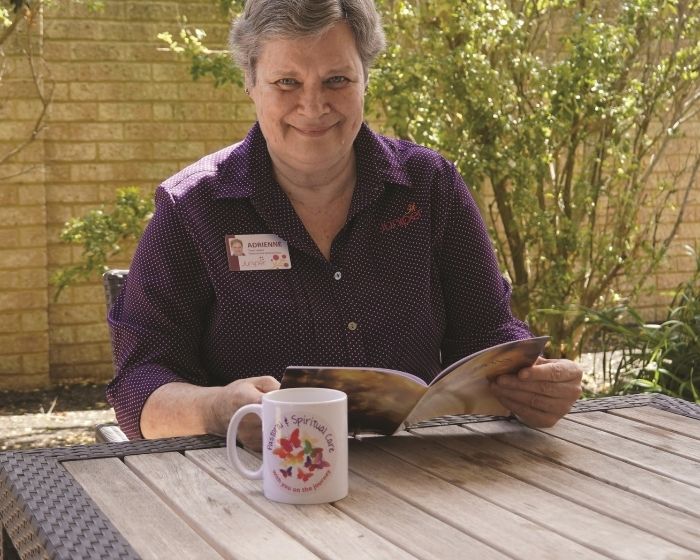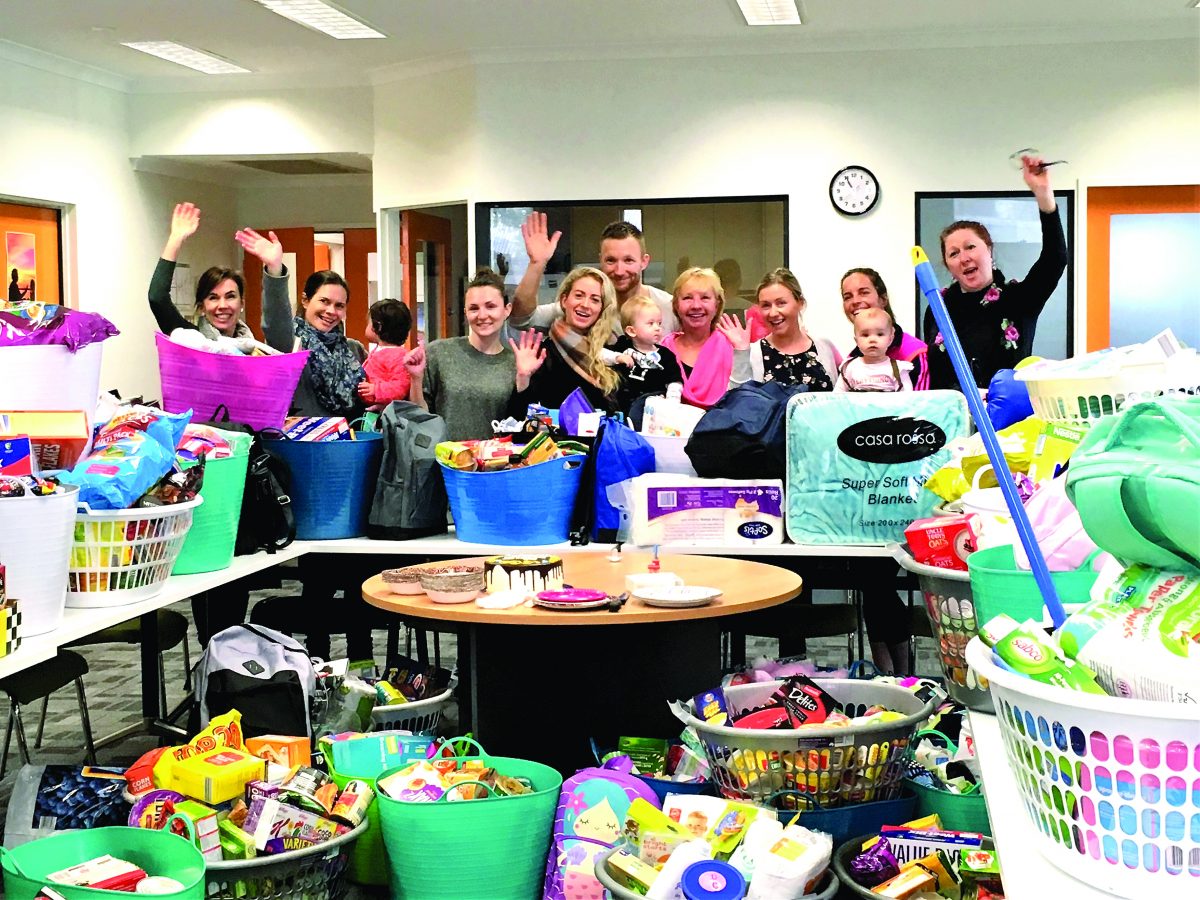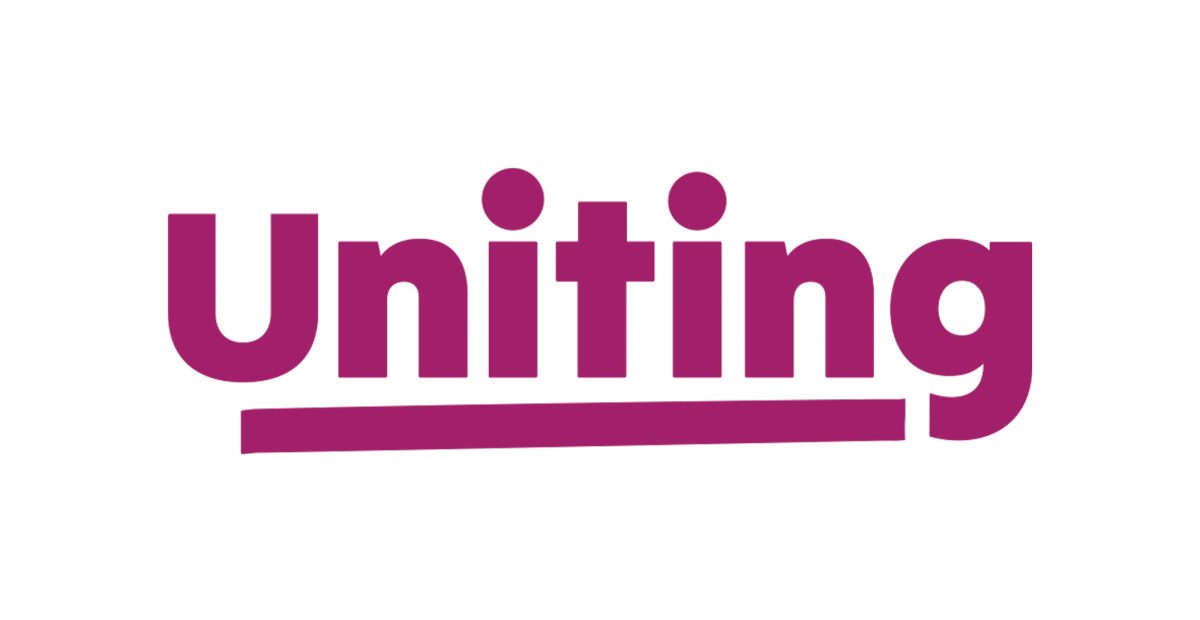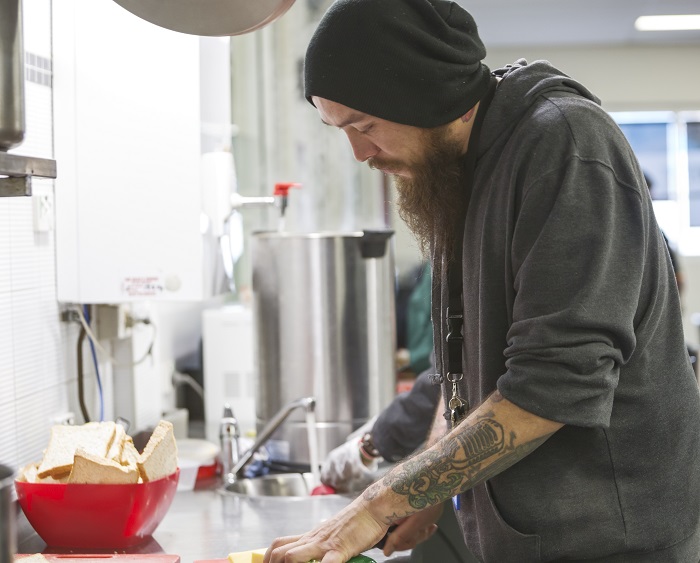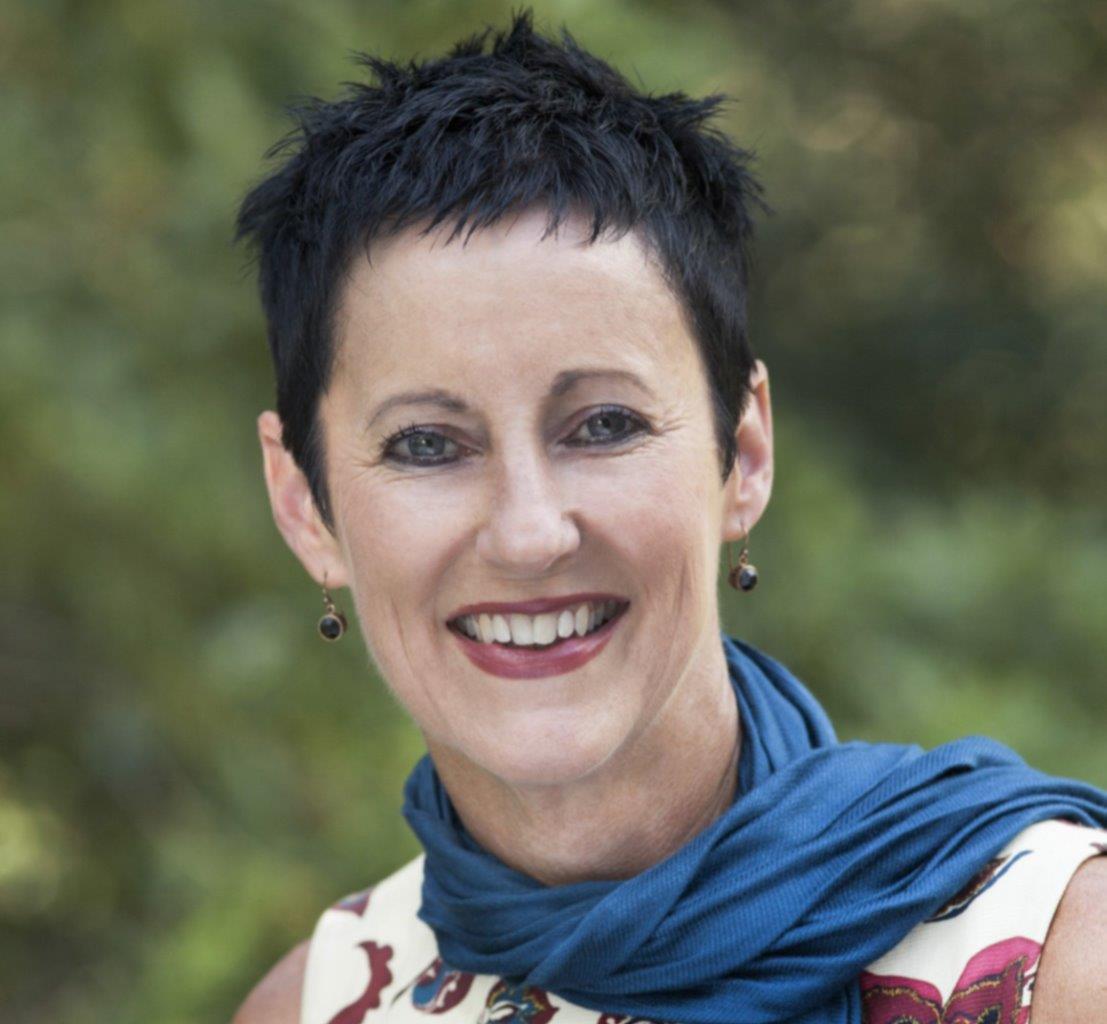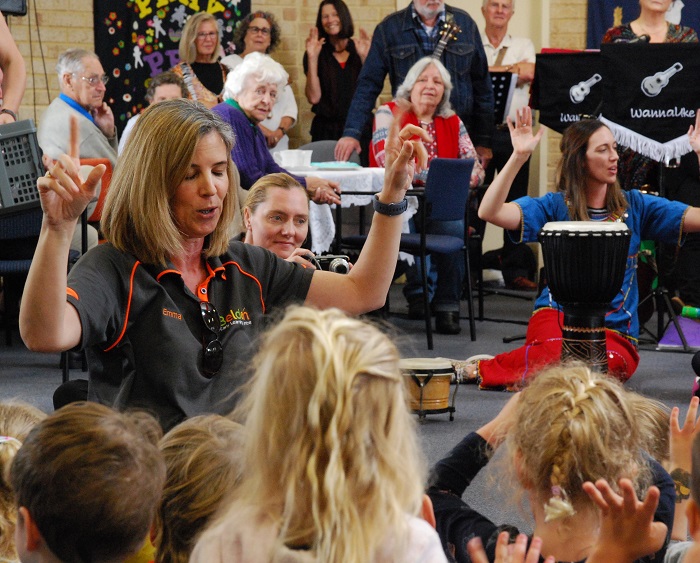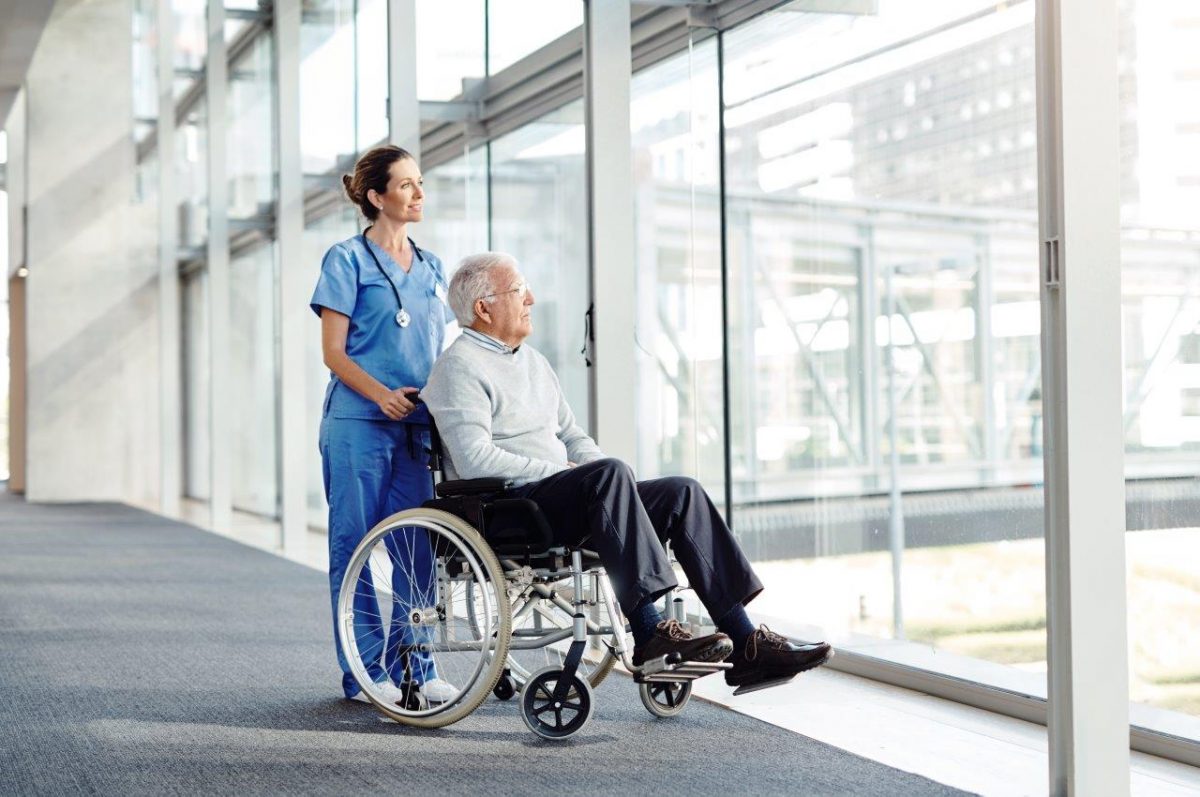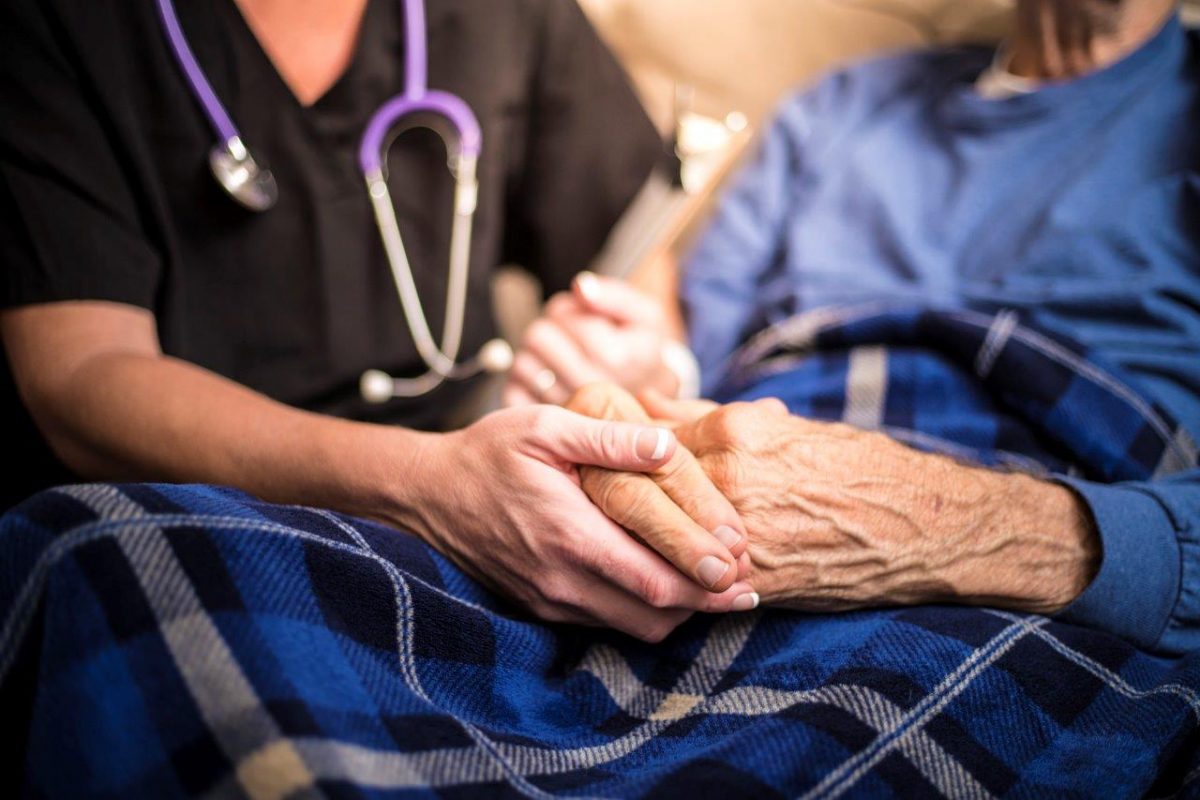Adrienne Inch knows the power of storytelling.As we age, it is normal to question our life’s purpose and meaning. For residents at Juniper, a Uniting Church WA agency providing aged care, this becomes even more prevalent.
In her role as Team Leader of Pastoral and Spiritual Care at Juniper, Adrienne Inch supports people as they work through these thoughts, and more.
Juniper provides community, retirement living and residential aged care services to people all over the state. But it is in residential care that the Pastoral and Spiritual Care Team work. The twelve staff on the team not only lead and arrange worship services for the sites, but also provide one-on-one pastoral care for residents and their families, as well as staff at the facilities. Adrienne also provides volunteer training for people who want to support the work of the team.
Adrienne explained one of the first things they do with supporting residents in their pastoral care is through a process of assessment designed to get to know who they are and where they find meaning in life. The assessment asks questions around religious beliefs, but also about their hobbies, family life, and where they find joy and meaning.
“We have to understand what the pastoral care needs of the residents are. And that comes through a process of getting to know them,” she said.
“If people are Christians that’s fairly straightforward – we know a bit about them, though everyone’s faith is different. We have people of all denominations, and we have a few people of other religious beliefs.
“The growing group is the group of people who say they don’t have any religion, or they were once part of a religion and they’re not anymore.
“We do a pastoral and spiritual assessment to understand what the needs are, and that’s made-up of several things. We find different ways of asking people ‘what gives meaning and purpose to your life?’ And not everyone has a Christian point of view.
“We see spirituality as a fairly broad concept about meaning and purpose, and who and what you’re connected to.”
For older people, grief can become a big part of life – as past grief begins to resurface, or as people experience more and more loss as they age.
“Sometimes people have grief from the past that still might need resolution,” Adrienne said.
“People won’t tell you everything in the first conversation. This information, you acquire over time, because people aren’t going to share their deepest secrets with you straight away.
“But you might discover they had a child who died in childhood, or a sister or brother who died, or a parent who died young.
“Particularly of the older generation, people weren’t always that aware of grief – people just had to get on with their lives. So sometimes when they’re older and have more time to think about it, then they revisit the events of their lives.”
It is when talking to people about their lives in this way that residents begin to open up and tell their stories.
“They have fascinating stories. People say, ‘oh I haven’t done much in my life’, and then tell you they’ve lived through WWII, they’ve lived through the depression, had next to no money, they did this and that – amazing stuff,” Adrienne said.
“Some of the stories are just amazing, the things people have done and survived.
“In that reminiscence with them, you can ask them questions or reinforce the significance of their lives. Clearly they made meaning out of their lives even when they were in very difficult circumstances.”
For people who are living with dementia, or who are non-cognitive, this process can become more challenging. However, there are other ways of connecting, such as sitting and talking with the family, or using symbolism.
Adrienne said there are a number of ways to strike up conversation with residents, which go beyond chatting about the weather.
“If you and I meet friends in the street, inevitably the weather is the first part of the conversation. It’s like an opening ritual,” she said.
“When you’re talking to people in residential aged care, they live in an airconditioned environment and while they do enjoy time outside, the weather is not always the best way to start a conversation, you have to find other ways to do this.
“So, I say to our volunteers, use the environment that you’re in, even what people are wearing. If you go into people’s rooms, observe what’s in the room – I spent a couple of hours with a man once who told me all about the photos on his wall.
“Find something immediate that you can talk about: How was lunch today? Or how was church for you today?
“Everybody benefits from talking.
“One of the most fascinating things I like to ask is ‘what was your first paying job?’ One lady wrapped chocolate in a chocolate factory in England, someone else worked for bookbinders and her job was to lay the paper out and take it into the room where the men bound them – it was all done by hand.
“They’ve got fascinating stories, amazing stories, and people come from all over the world.”
As is throughout religion and spirituality, symbolism and rituals become extremely important
in this aged care environment – particularly for people with dementia or who have limited-cognitive.
The Juniper Pastoral and Spiritual Care Team lead regular church services in the facilities, which are interdenominational and general.
The team also arrange for religious leaders from local churches or worship places to visit and conduct specific sacred rituals, such as communion.
“People can’t always express verbally what’s important to them, but if you set-up a cross and you have hymns, people have the sense that they’re in a church service,” Adrienne said.
“We have a number of Catholic residents, so we try and connect with the local Catholic church, so the priest can come in and give communion to the residents.
“Particularly people with memory loss, if they see a priest wearing his collar they know what that is, they can connect.
“Finding the emotional and spiritual needs can be a challenge if people can’t communicate with you. It takes time.”
While Juniper is a Christian agency of the Uniting Church WA, residents of the facilities come from all sorts of backgrounds and religion, including no religion. It is not the job of the pastoral care team to evangelise people to Christianity, but to support people in their own journeys and facilitate the religious and spiritual rituals that are requested.
“Our work is in response to the residents. We’re not there to put up the flag for Christians, our role is to respond to who is there and what they’re looking for and how they want to be supported. We do what we can to support them in the best possible way that we can,” Adrienne said.
“We’re not classically evangelical, we’re not here to convert everybody before they die. We’re here to support them and connect them to what is important to them.
“That’s not to say we don’t get to share our faith.
“The team create a Christian community in the facility, and that has really been very helpful for people to feel encouraged in their faith. People like what happens and its fairly informal, but it does have formality to do with church.
“We try and involve the residents in the church services. Residents read the Bible readings, or come and light the candle. Some of them can’t, but where we can we encourage them to participate.
“Services with people with dementia always have to be fairly flexible. People can come and go, walk-in and out, people call-out. You just have to be flexible because you’re never quite sure what people are going to say or do next; they lose some of their inhibitions.”
Again, Adrienne said that stories are a powerful medium for communication and connection.
“Stories are the best way to communicate meaning,” she said.
“We use the Uniting Church Lectionary, so stories are often the best way, rather than trying to tackle complicated theology.
“We do have people sitting in the room who are very cognitive, so we can’t make it childish. We need to draw a line between simple for people to understand, but not childish.
“It needs to be adult and stimulating for people who are cognitive and who have been going to church all their life.”
As many residents age into the end of life, pastoral and spiritual care can turn to supporting people through grief, loss and dying. A lot of this is done with the residents themselves, but also with their families and the staff who have been caring for them.
When deaths occur, funerals and memorial services are held to honour and celebrate people’s lives – residents, staff and family are all invited to attend.
“We’ve developed a number of resources that we use, as we deal a lot with grief and dying,” Adrienne said.
“Quite a bit of our work is with family members who are coming to visit, and you get to know some of them too. It’s not easy for people to watch their loved ones deteriorate and die.
“Some of my team have done things particularly for staff – the staff get very connected to the residents.
“End of life support is really quite important. Although people are old and we expect them to die, it’s still difficult.
“When they’re gone, it’s difficult. It’s still a major event for people. It’s still a loss.”
A huge part of sharing in people’s stories in pastoral and spiritual care is active listening.
“Talk therapy is the best therapy, that’s the bread and butter of what we do,” Adrienne said.
“I think that listening is a spiritual gift because it’s so rare to be honest. We’re not good listeners, generally speaking. We all want to tell our own story, which is fine, but we’re not that great at sitting and listening.
“When I do volunteer training, I say to people to observe their listening through the week. And when they come back, they often say ‘I’m a terrible listener.’
“When you’re sitting with friends, that’s fine. But if you want to be an intentional listener then you need to hold your own story and focus on what the person is telling you. Help them to explore their own story – that’s what we do here.”
For Adrienne, working in pastoral care in an aged care environment is more than a job – it gives meaning to her own life. “There’s something about being with vulnerable people that connects you with your own vulnerability,” she said.
“When I think about the gospel, Jesus was someone who spent time with vulnerable people – that’s pretty clear.
“Aged care is not for everyone. You need patience, you need to be able to listen, accept and love people as they are.
“Over time you learn how to go with what is – where people are in the moment.
“I find their lives and stories fascinating, just amazing. If I can do something to help in their last few years to make it as good as it can be, then that’s a great thing to be doing – that’s a great ministry and a great service to be involved in.”
Want to get involved?
Juniper’s Pastoral and Spiritual Care Team welcomes volunteers, who assist in a range of ways. Volunteers help bring residents to and from church, provide music, help with activities, and provide one-on-one conversation with residents.
Volunteer training will be happening in the new year. To find out more get in touch with Adrienne at adrienne.inch@juniper.org.au.
Heather Dowling
